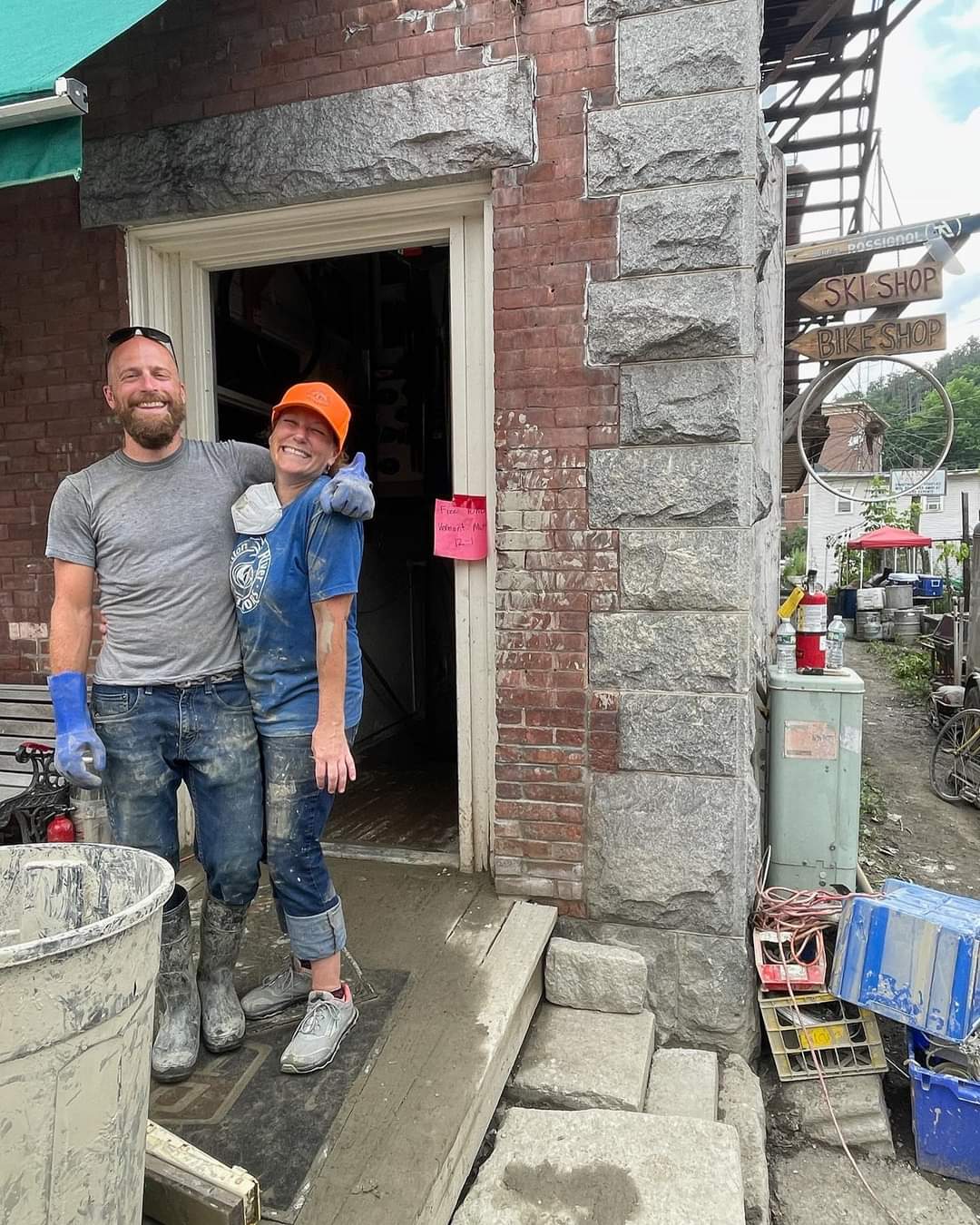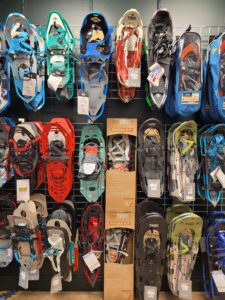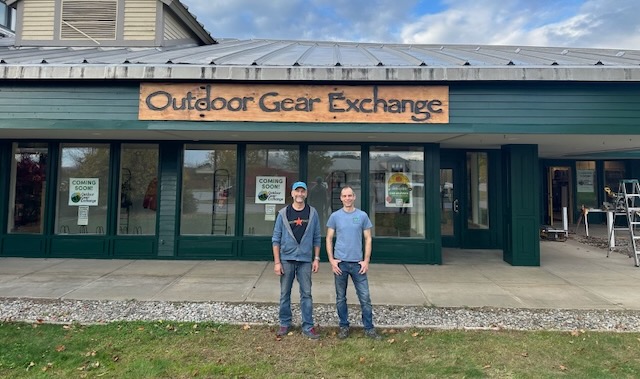Why Shopping Locally Means More This Year Than Ever
It’s easy to get lured into coveting something you see on a social media post. Doesn’t that ripped athlete/ambassador look swank in that down vest? Wouldn’t you too? It’s simple to sit on the couch on Black Friday, scroll through Amazon, and click-click-click, your holiday shopping is done.
Go ahead. But be prepared to spend the next month returning items that were better fitted to a Barbie doll. Or watching an item fall apart after three uses. And taking the boxes and plastic packaging they came in to the land fill.
Reliability is one good reason to head to your local gear shop. Most of the outdoor retailers in the state – ski shops, bike shops, mountaineering shops and more – test the gear they sell. Their staff truly love the outdoors. They stock the items they’ve found to be tried and true. Most of Vermont’s independent outdoor retailers will stand by a product they sell if you have any issues with it.
A good local shop will also find the item that’s right for you because the folks there take the time to understand how you are going to use it. That shop guy or gal you see every month is not just out to sell you the most bougie bike or stiffest skis. They care if you are happy. They want you to come back.
But there are other, even better reasons to shop locally this season. Perhaps the best? Vermont’s local independent retailers really need you. Now more than ever.
Many of Vermont shops were devastated by floods this past summer – either directly through damage or indirectly through loss of business. “We had over three feet of water in our ground floor,” remembers Jen Roberts, a co-owner of Onion River Outdoors. For days, Roberts, her husband Kip, staff and volunteers, pulled damaged gear from their building on Montpelier’s Langdon Street. They lost more than $1 million in inventory.
There was concern that this shop – one that has helped support the region’s outdoor community for decades— wouldn’t come back. If so, what would happen to the events they put on such as the Muddy Onion gravel ride or the winter Snowshoe Romp? What would happen to the local trail events at North Branch or the races ORO has supported such as VSECU’s Point to Point which in turn raises money to support The Vermont Food Bank.

In Barre, The Vermont Bicycle Shop saw more than $200,000 in lost revenue and flood damage. In Ludlow, The Dark Side had a literal river of mud sweep through the shop. Nearby, Tygart and The Boot Pro were spared but with roads into and out of town closed, and routes taking weeks to repair, their bottom lines were hit hard. “If you lose a weekend of shoppers in July, it’s not like you can make that back in late October,” noted Alex Racicot of The Boot Pro. “We rely on visitors in the summer and skiers in the winter. This summer, people just stopped coming.” For Randy Ellis, whose family has owned First Stop Board Barn in Killington for two generations, the summer business that relies on paddleboarding disappeared after the flood. “The lakes weren’t safe for paddling last summer and the trails were often too wet for riding,” he said. Stowe’s Umiak , a paddling hub, faced similar challenges.
The good news is that many of these shops are rebuilding. Onion River Outdoors moved into a new space at 89 Main Street in Montpelier. The Vermont Bicycle Shop, thanks in part to a fundraising drive spearheaded by ultra-distance bikepacker Miron Golfman, reopened. The Dark Side has been operating out of its Killington location.
But even shops that were not impacted by floods have been facing challenges. The dearth of inventory during Covid, coupled by sweeping demand as more and more people got outside during the pandemic, led to another flood: as supply chains opened up, outdoor gear and apparel began to saturate the market.
“In October, we were already seeing the online sales you might normally see in mid-winter,” notes Marc Sherman of The Outdoor Gear Exchange. The Burlington-based retailer has long been considered one of the leading independent retailers in the nation, winning awards such as the Inspiration Award from the trade organization, Outdoor Retailer.
This past fall, OGE downsized its 13,000 square-foot Church Street shop, moving its much-loved consignment section upstairs and closing off the basement space. But, as Sherman is quick to point out, “Nothing’s going away. We still have consignment and some of our inventory will be going to our new shops in Essex and in Waitsfield.”

Just as OGE reconfigured its Church Street location, it moved inventory and some consignment to its new 6,000-sq.-ft. location at The Essex Experience. This past summer it also opened a small retail and bike shop at the new Rider’s Outpost hotel and campground in Waitsfield.
“The pandemic shifted how people work and with so many people working from home, Church Street in Burlington doesn’t see the foot traffic it used to. We decided to take our gear to where people are living and playing,” said Sherman.It’s a situation that is true around the state. The hubs of towns were once the hardware store, the post office and the grocery store. As outdoor recreation took hold, Vermont added the local bike, ski and mountaineering shops to that list.
Around Vermont many of those shops are still there – anchoring communities, serving as gather places, dishing out local knowledge, hosting events and yes, fixing broken spokes and selling gear.As you shop this holiday season and beyond, remember one thing: Amazon Prime won’t tune your bike or your skis.

